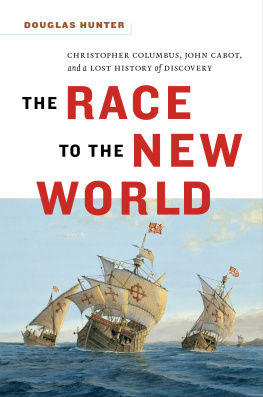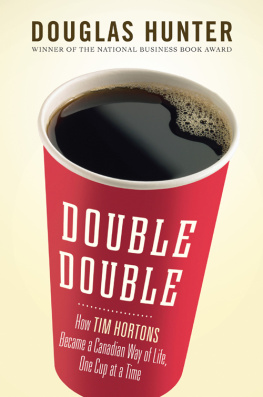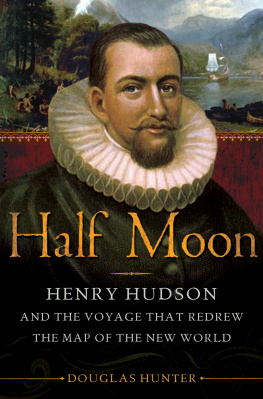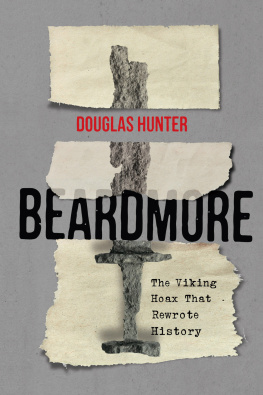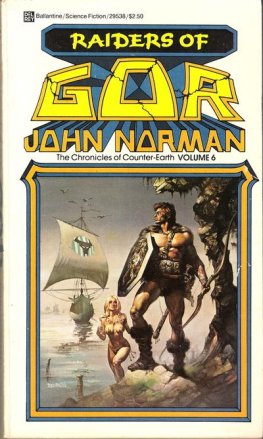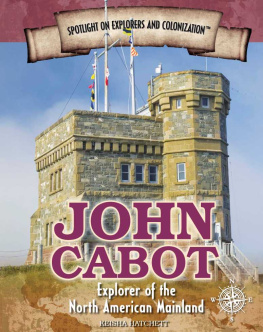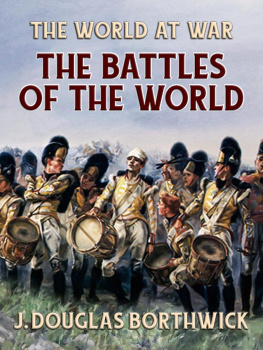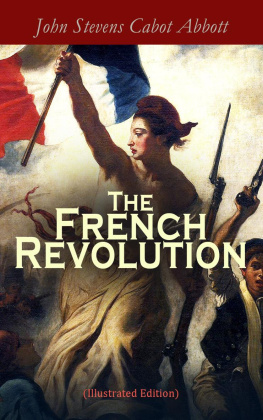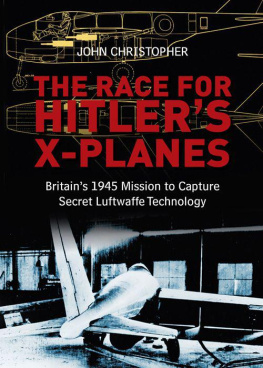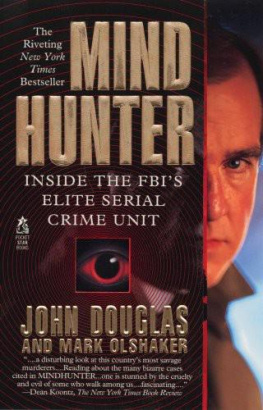Douglas Hunter - The Race to the New World, Christopher Colubus, John Cabot, and a Lost History of Discovery
Here you can read online Douglas Hunter - The Race to the New World, Christopher Colubus, John Cabot, and a Lost History of Discovery full text of the book (entire story) in english for free. Download pdf and epub, get meaning, cover and reviews about this ebook. year: 2012, publisher: Douglas & McIntyre, genre: Non-fiction. Description of the work, (preface) as well as reviews are available. Best literature library LitArk.com created for fans of good reading and offers a wide selection of genres:
Romance novel
Science fiction
Adventure
Detective
Science
History
Home and family
Prose
Art
Politics
Computer
Non-fiction
Religion
Business
Children
Humor
Choose a favorite category and find really read worthwhile books. Enjoy immersion in the world of imagination, feel the emotions of the characters or learn something new for yourself, make an fascinating discovery.
- Book:The Race to the New World, Christopher Colubus, John Cabot, and a Lost History of Discovery
- Author:
- Publisher:Douglas & McIntyre
- Genre:
- Year:2012
- Rating:5 / 5
- Favourites:Add to favourites
- Your mark:
- 100
- 1
- 2
- 3
- 4
- 5
The Race to the New World, Christopher Colubus, John Cabot, and a Lost History of Discovery: summary, description and annotation
We offer to read an annotation, description, summary or preface (depends on what the author of the book "The Race to the New World, Christopher Colubus, John Cabot, and a Lost History of Discovery" wrote himself). If you haven't found the necessary information about the book — write in the comments, we will try to find it.
The Race to the New World, Christopher Colubus, John Cabot, and a Lost History of Discovery — read online for free the complete book (whole text) full work
Below is the text of the book, divided by pages. System saving the place of the last page read, allows you to conveniently read the book "The Race to the New World, Christopher Colubus, John Cabot, and a Lost History of Discovery" online for free, without having to search again every time where you left off. Put a bookmark, and you can go to the page where you finished reading at any time.
Font size:
Interval:
Bookmark:
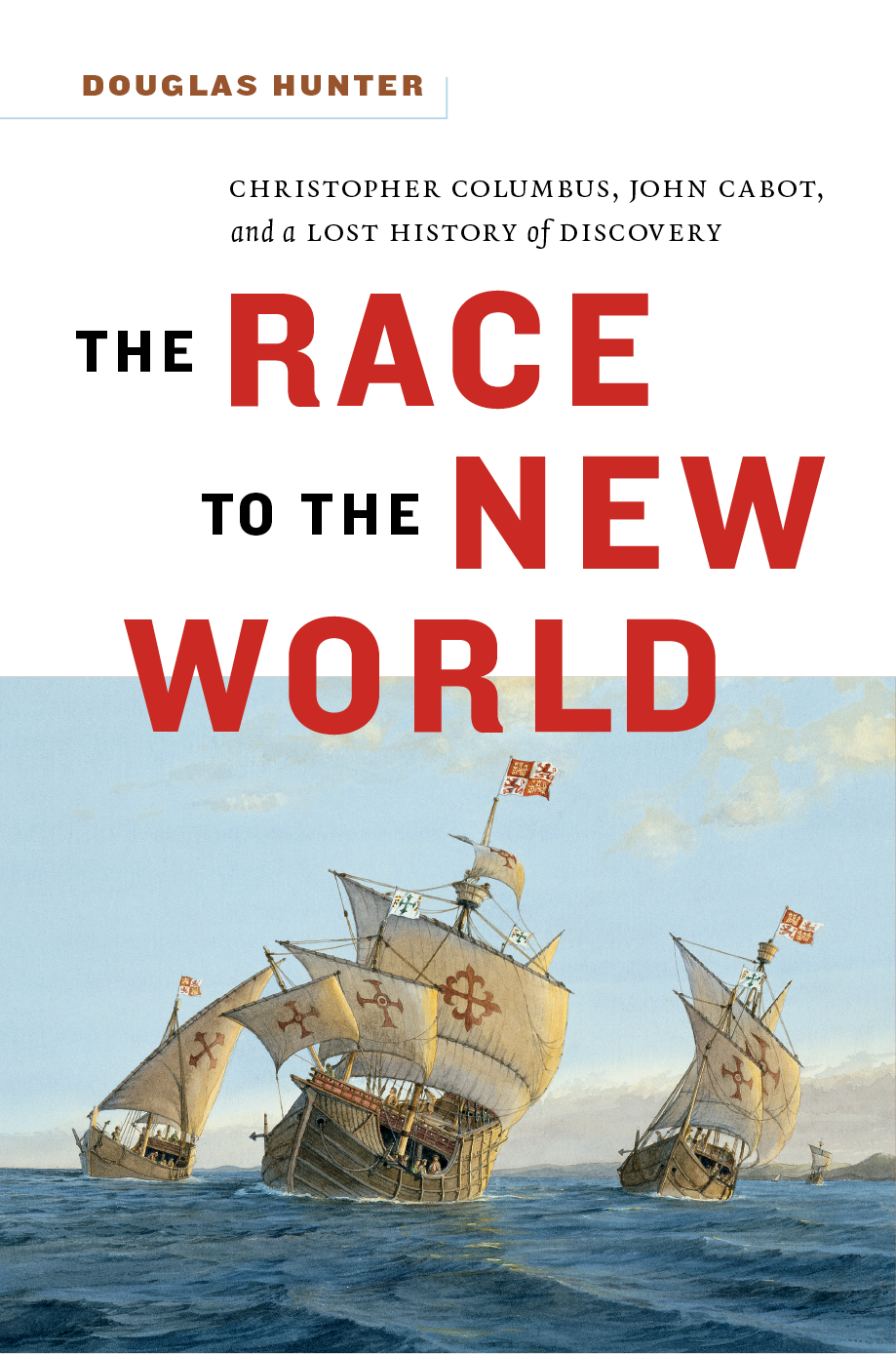
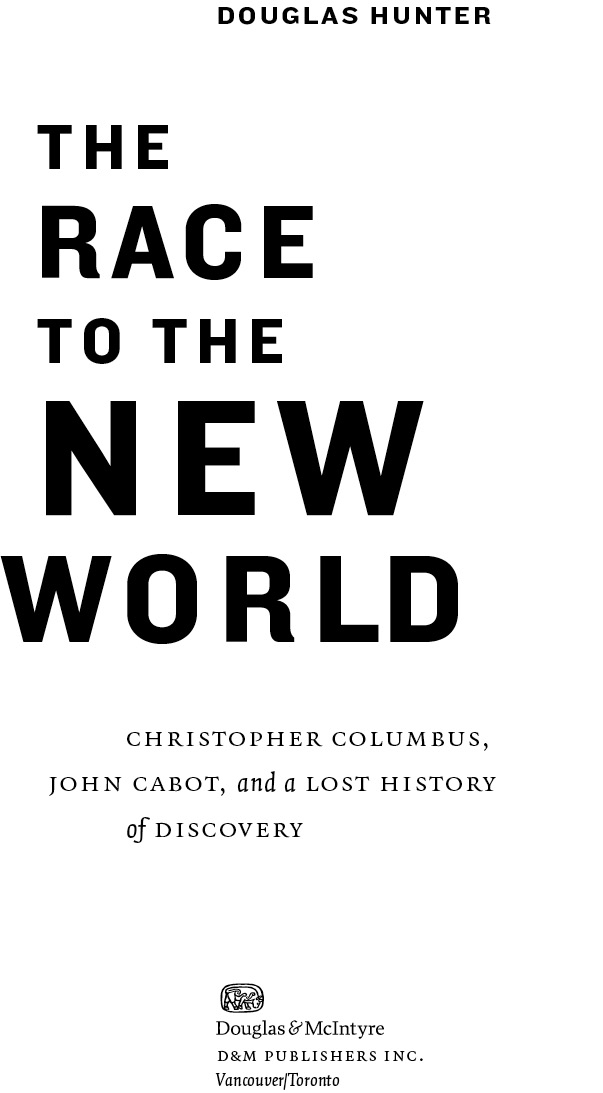
Contents
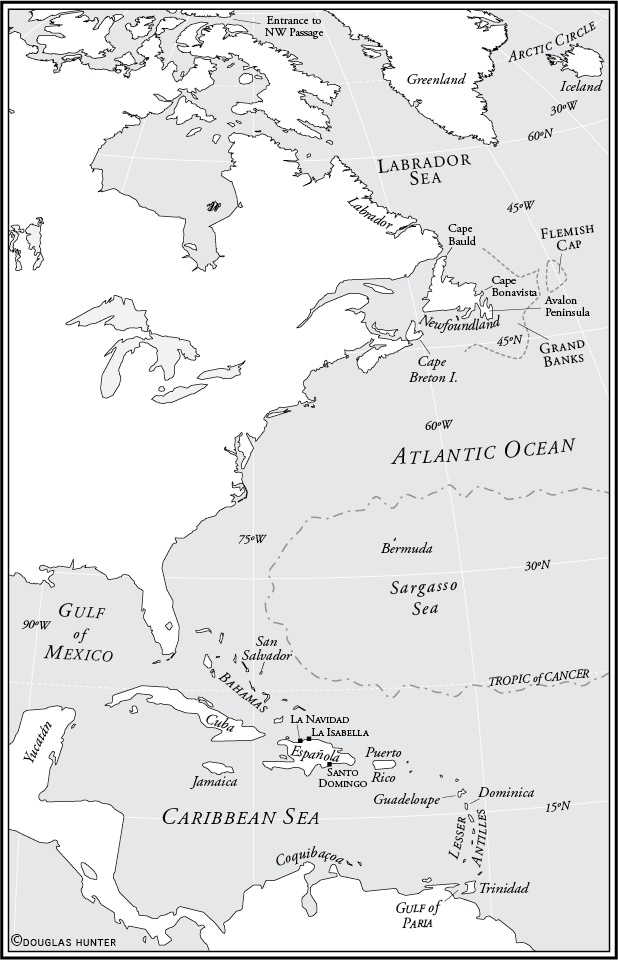
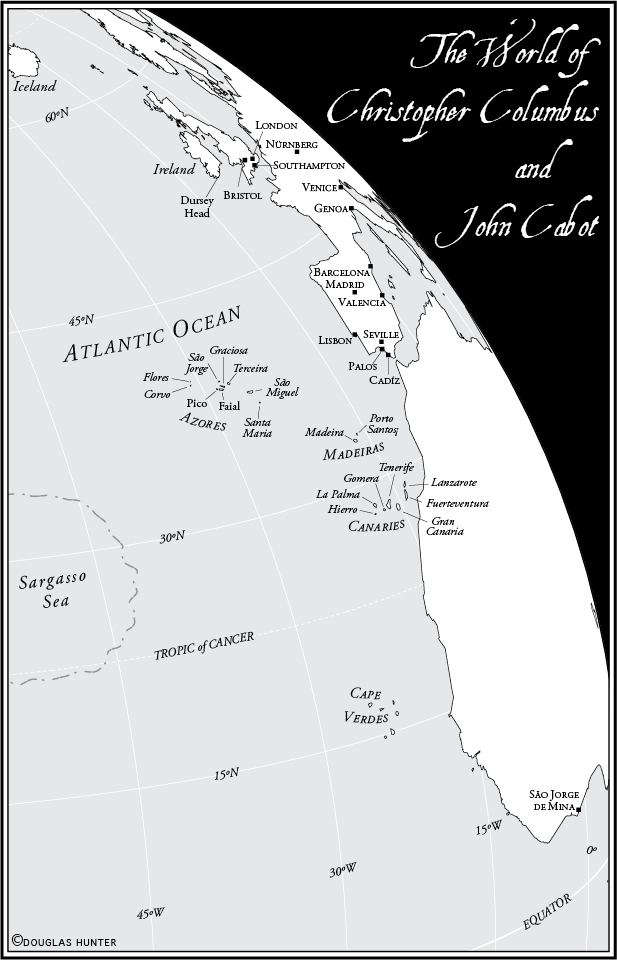
INTRODUCTION
ON FEBRUARY 17, 2006, a 418-word obituary for Alwyn Amy Ruddock appeared in The Guardian. Written by Edith Emma Mason, a former colleague in the history department at the University of Londons Birkbeck College, it briefly recapped the life work of an eighty-nine-year-old woman who had died on December 21, 2005.
Ruddock was a respected economic historian who had made what were widely believed to be breakthrough finds about the voyages of discovery to the New World in the late fifteenth century by the Venetian known to the English-speaking world as John Cabot. Mason noted how Ruddock had produced a draft of a book about Cabot, but destroyed it because it did not meet her exacting standards. She began work on the book again, but her progress was slowed by failing eyesight and declining health.
This second version of the Cabot book was never completed, stated Mason, who concluded by observing that Ruddock left strict orders that all research papers were to be destroyed at her death. Ruddocks will had indeed instructed her trustees to burn shred or otherwise destroy all my letters and photographs both personal and professional microfilms unfinished writings and other research and notes in my possession at the time of my death if this has not already been done prior to my death... as soon as possible after my death.
On March 22, 2006, Evan Jones received a copy of the obituary from a colleague. A senior lecturer at the University of Bristol who specializes in Bristol maritime history of the fifteenth to seventeenth centuries, Jones was too young to have known Ruddock, but he knew her reputation and all about the Cabot book that never was. Mobilizing the Bristol historical community, Jones was able to confirm his worst fears: Ruddocks unpublished lifes work had long since been fed through a shredder, stuffed into seventy-eight bags, and unceremoniously disposed of. A close friend and neighbor of Ruddocks who was one of the estates beneficiaries and trustees had been compensated an additional five thousand pounds under the wills terms for doing her posthumous bidding.
The revelation was a stunning coda to a perplexing and tragic career. What little Ruddock had published on Cabot was first-class stuff. Her proof that the letter by John Day to Christopher Columbus describing Cabots first English voyages actually was written by a prominent London merchant named Hugh Say was exemplary of her analytical and archival skills. In waiting for her book, scholars were persuaded for four decades that Ruddock was poised to turn the story of Cabot and the discovery of North America (in her own words) upside down.
In 1967, Ruddock had teasingly allowed in a letter to the leading exploration scholar David. B. Quinn, with whom she had been associated since her student days in Southampton in the late 1930s: The documents Ive got on Cabot do alter our picture of everything rather radically. She would ultimately claim to have perhaps twenty-three new documents, which was an astounding haul, as it would almost double the number of known documents relating to Cabots voyages, most of which had been published in 1962.
But the book she had planned, which was well under way by 1966, kept changing its focus, or shifting between an academic and a popular work, or splitting into two books, and never appearing as promised. Following her retirement in 1976, fellow historians knew little more than that she had turned up important evidence, some of it probably in Italy. She approached Exeter Press in October 1992 with a proposal for a book that would be published in 1997, to coincide with celebrations of the five hundredth anniversary of Cabots discovery of North America. Her working title, Columbus, Cabot and the English Discovery of America, not only included Cabots rival Christopher Columbus but also intriguingly gave first billing to the Genoese mariner sailing in the service of Spain. Exeter contracted her to write the book, but beyond a 1992 synopsis of short chapter outlines (without a single cited source) and a few subsequent notes to an overly patient editorial staff, Ruddock never turned in a page of the manuscript. After her death, no one came forward who knew exactly what she had, precisely where shed found it, or how deeply it was going to impact the status quo of exploration history. Tantalized by the prospect of a revolution in their understanding of North Americas discovery, scholars had waited for her to reveal her breakthroughs.
And waited, for decades. Historians withheld some of their own work, fearing Ruddocks always-imminent revelations would render their efforts pointless and obsolete; some left the study area largely to her, knowing the head start she had and not wanting to invade her turf. Most certainly some young scholars avoided entering her field altogether. Then Ruddock died, and had the trustee of her estate destroy the photographs, rolls of microfilm, and papers that could tell others what she alone knew.
IN SEPTEMBER 2009, I published the book Half Moon, on the 1609 Henry Hudson voyage. Intrigued by the crypto-history of New World discovery as a cultural and historiographical phenomenon, I had already turned my attention to new research on earlier voyages and accounts, both real and imagined. I became intrigued by the story of Alwyn Ruddock, her lost research, and the efforts to track down what she had found. As I learned, there actually had been more than two versions of the stillborn Columbus-Cabot book, and Ruddock had left work on several other major initiatives incomplete, ultimately destroying those as well. When Half Moon was published, some new evidence on early English voyages to the New World out of Bristol had just been announced by Evan Jones, who had been on the Ruddock case ever since The Guardian obituary was forwarded to him in March 2006. These in fact were old finds, by Margaret Condon from the 1970s, that had been lost by going unpublished during Ruddocks idiosyncratic domination of Cabot scholarship. Jones had managed to bring forward these discoveries and reenlist Condons research aid in pursuing Ruddocks lost Cabot evidence.
The alternately tragic and infuriating story of Alwyn Ruddock and her deliberately destroyed research is a tale unto itself, and one that I told in Canadas History in April 2010. (A longer version, with more detail about Ruddocks career and her relationship and correspondence with Quinn, is archived online at my website. See the bibliography.) It is but a prelude to the tale of the remarkable ongoing sleuthing by Evan Jones and his associates in the Cabot Project, as they hunt down the evidence for Ruddocks otherwise-unsubstantiated claims. The quest has led them everywhere from the National Archives at Kew to archives in Italy to a shoe closet in Ruddocks old house in West Sussex, which turned out to hold vital scraps of her papers that survived the destruction of her estate.
The Cabot Projects evidentiary discoveries support a number of contentions Ruddock made in her synopsis and the supportive notes for the book she promised to Exeter Press. Late in the drafting of this book, Francesco Guidi Bruscoli joined the Cabot Project; following a fresh lead Jones had wrested from the contents of Ruddocks shoe closet, he located in Italy the ledgers of the House of Bardi and found an entry that proved Cabot was a client of the London branch of these Florentine merchant bankers. Other assertions by Ruddock, particularly those surrounding the activities and the ultimate fate of the 1498 Cabot flotilla, remain unproven, as I discuss in the afterword.
Next pageFont size:
Interval:
Bookmark:
Similar books «The Race to the New World, Christopher Colubus, John Cabot, and a Lost History of Discovery»
Look at similar books to The Race to the New World, Christopher Colubus, John Cabot, and a Lost History of Discovery. We have selected literature similar in name and meaning in the hope of providing readers with more options to find new, interesting, not yet read works.
Discussion, reviews of the book The Race to the New World, Christopher Colubus, John Cabot, and a Lost History of Discovery and just readers' own opinions. Leave your comments, write what you think about the work, its meaning or the main characters. Specify what exactly you liked and what you didn't like, and why you think so.

